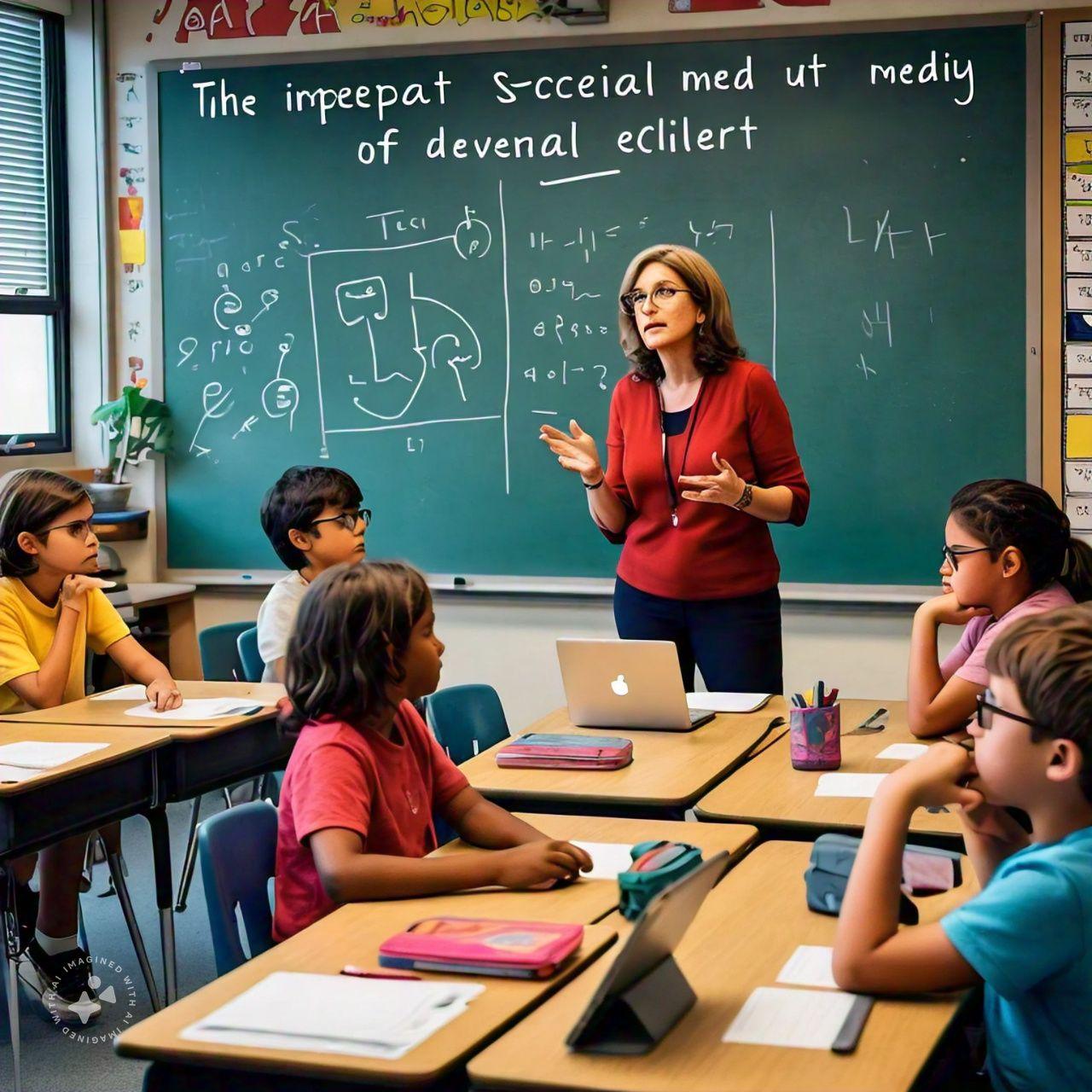THE IMPACT OF SOCIAL MEDIA AND TECHNOLOGY ON CHILD DEVELOPMENT

The rapid evolution of social media and technology has transformed the way children interact, learn, and grow. While these innovations offer numerous benefits, they also pose significant risks to child development.
POSITIVE EFFECTS:
1. Enhanced learning and education
2. Improved social connections and communication
3. Access to vast information and resources
4. Development of digital literacy and skills
5. Opportunities for creative expression
NEGATIVE EFFECTS:
1. Addiction and decreased attention span
2. Cyberbullying, harassment, and online safety concerns
3. Sleep deprivation and physical inactivity
4. Decreased face-to-face interaction and social skills
5. Exposure to inappropriate content and advertising
6. Body image concerns and low self-esteem
7. Increased stress and anxiety
AGE-SPECIFIC CONCERNS:
1. INFANTS (0-2): Screen time delays cognitive development
2. TODDLERS (3-5): Excessive screen time hinders social skills
3. CHILDREN (6-12): Online safety concerns and addiction
4. TEENAGERS (13-18): Cyberbullying, body image issues, and mental health concerns
CONSEQUENCES ON BRAIN DEVELOPMENT:
1. Altered dopamine release and reward system
2. Changes in neural connections and structure
3. Impaired impulse control and decision-making
4. Delayed cognitive development and academic performance
PARENTING GUIDELINES:
1. Set screen time limits and monitor usage
2. Encourage physical activity and outdoor play
3. Foster face-to-face interactions and social skills
4. Educate children about online safety and etiquette
5. Model healthy technology habits
RECOMMENDATIONS:
1. American Academy of Pediatrics (AAP): No screen time for children under 2
2. World Health Organization (WHO): Limit screen time to 1 hour/day for children 2-4
3. National Sleep Foundation: Avoid screens before bedtime
CALL TO ACTION:
As parents, caregivers, and educators, it's crucial to recognize the impact of social media and technology on child development. By being informed, setting boundaries, and promoting healthy habits, we can:
1. Protect children's physical and mental well-being
2. Foster responsible technology use
3. Ensure a balanced and healthy childhood
SOURCES:
- American Academy of Pediatrics (AAP)
- World Health Organization (WHO)
- National Sleep Foundation
- Child Mind Institute
- Cyberbullying Research Center


- Art and Design
- Automotive
- Beauty and Health
- Books
- Business
- Careers
- Community Building
- Corporate
- Creative writing
- DIY and Crafts
- Education
- Environmental Issues
- Fashion
- Finance
- Fitness
- Food
- Gaming
- Gardening
- Green Living
- Health and Wellness
- Home Decor
- Lifestyle
- Movie
- Music
- News
- Non-profit
- Parenting
- Personal Development
- Pet and animal
- Photography
- Podcasting
- Politics
- Product Reviews
- Real Estate
- Religion
- Science and Technology
- Social and culture
- Software Reviews
- Sports
- Sustainability
- Technology Reviews
- Travel and Events
- Videography
- The DOT2025 Journal


